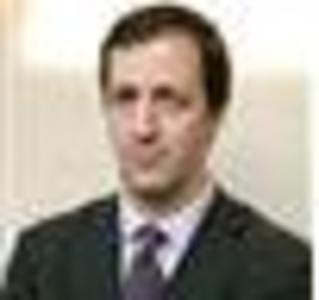He's toast, of course. You don't do yourself the kind of harm Gilles Duceppe did over the weekend and expect to carry on as before. Trailing blood, Mr. Duceppe has been allowed to hang on as leader of the Bloc Quebecois for the time being, by the grace and favour of his caucus. But with his party floundering-- some recent polls show it scraping 30% support among Quebecers, a historic low -- the broader party membership will soon begin to ask whether he is the man to lead them into the next election.
Mind you, Mr. Duceppe is hardly alone in this predicament. Stephane Dion's shaky start as leader of the Liberals is the despair of much of the party. Former leadership rivals do not even bother to leave the bad-mouthing to subordinates. At slightly more than 30% nationwide, the Liberals may no longer be touching their own historic lows as they were earlier this spring. But any consolidation of their support has come at the cost of positioning themselves way out to the left. With the threat of an election receding, some in the party may see the coming hiatus as a chance to rethink the decision of last December.
But then, as long as we're talking about leaders in trouble, what about Jack Layton? Though it has attracted fewer headlines, the NDP finds itself battling to stay ahead of a party that does not even have a seat, the Greens. Caught out by the sudden emergence of global warming as an issue, the party is now trapped in a dilemma, fearing to bring the government down but infuriating and demoralizing its supporters every time it props it up -- as in the recent vote on a Liberal motion to pull Canadian troops out of combat in Afghanistan in two years.
That leaves the Conservatives -- who in some ways are doing worse than any of them. Nearing 40% in public support scant weeks ago, three recent polls have the Tories trailing the Liberals. This, after all their efforts to remake themselves as a comforting, middle-of-the-road party. As they cast about for explanations, one analyst after another points to Stephen Harper as the cause: his chilly persona, his inability to connect with voters, the abiding mistrust he engenders.
Strange, but true: All the major parties are struggling, and all of the leaders are under fire, at the same time. It's hard to believe this is even arithmetically possible, let alone politically.
What's going on? One theory: All of the parties and their leaders struggling to adjust to the new world that was created on Jan. 23, 2006 -- or rather, the one that was in the works for some time before that: a world without a dominant Liberal party. Not that the Liberal party itself is going anywhere. But the age of Liberal hegemony, the days in which the Liberals could safely bank on winning three elections in four are over. As with any such epochal event, the decline of the Liberal empire has brought with it great uncertainty. Everyone has had to change their playbook, and with change and uncertainty come mistakes.
For the NDP, the playbook used to be very simple: While the Liberals were the party of power, the New Democrats were the party of principle, the "conscience of Parliament." But if the Liberals' place in the firmament was no longer so certain, then neither was the NDP's. Perhaps, some in the party reasoned, they could displace the Liberals as the left-of-centre alternative to the Conservatives. Perhaps they could dare to dream of power. Hence what was previously an unthinkable sight: the Conservatives, governing with the support of the NDP.
The Bloc, likewise, had a simple enough playbook: to run against Liberal arrogance and corruption, both in ample supply so long as the Liberals were actually in power. But what to run against without the Liberal bogeyman? The Bloc has no answer to that.
It is the two largest parties, however, for whom the dilemmas have been most acute. The Liberals, forced at long last to ask themselves the existential question -- Who are we? -- have answered by moving sharply left, embracing the environment in particular with evangelistic fervour. It hasn't been an entirely convincing performance, not least because of the party's own record.
The Tories, for their part, have also moved left, which is to say into the centre. Sensing an opportunity to make the Conservatives the new "natural governing party," Mr. Harper has pushed through the most extraordinary series of reversals: whether of policies his government had just adopted (the ill-fated Clean Air Act), or of promises on which they campaigned a year ago (income trusts), or in some cases of the beliefs of a lifetime. But again, they overdid it, alienating their own base even as they were confusing other potential voters. Tory partisans have been left reassuring themselves of the very thing they most hotly deny to others: Don't worry, there's a hidden agenda.
This situation is unlikely to persist. Eventually one or the other of the parties is bound to recover its equilibrium, to find the right balance of principle and pragmatism for a new political era. Until then, welcome to Canada, where all the parties are below average.
Ac@andrewcoyne.com






















Laissez un commentaire Votre adresse courriel ne sera pas publiée.
Veuillez vous connecter afin de laisser un commentaire.
Aucun commentaire trouvé